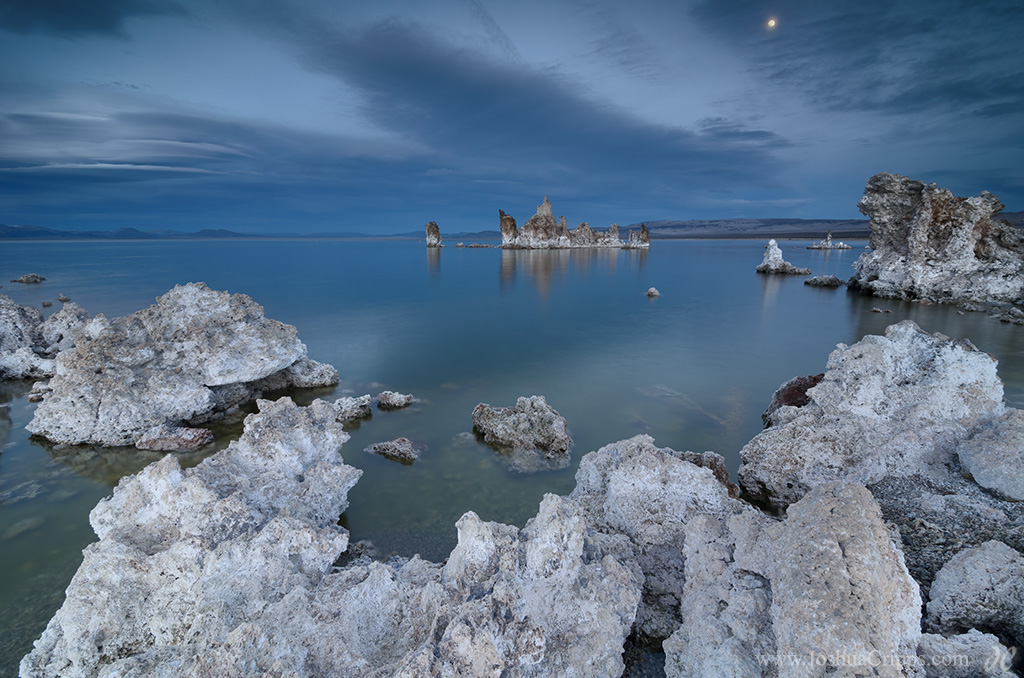
[av_heading heading=’Behind the scenes of this photo’ tag=’h3′ color=’custom-color-heading’ custom_font=’#949494′ style=’blockquote classic-quote’ size=” subheading_active=” subheading_size=’15’ padding=’0′ av_uid=’av-2vsto6′][/av_heading]

[av_heading heading=’Behind the scenes of this photo’ tag=’h3′ color=’custom-color-heading’ custom_font=’#949494′ style=’blockquote classic-quote’ size=” subheading_active=” subheading_size=’15’ padding=’0′ av_uid=’av-2vsto6′][/av_heading]
Taken in deep twilight at Mono Lake South Tufa on February 12th, 2014
I hate Manifest Destiny. The idea that American colonists were destined to expand across the west to conquer its lands and its resources makes me want to puke. Yet that idea drove much of our expansion across the continent over the past 150 years. And somehow, bizarrely, this concept that it is our right and provision as humans to exploit the land however we see fit is still shaping policy on a large scale today. Look at Canada, which just tragically opened up huge swaths of pristine Yukon wilderness to enormous mining concerns, dooming the lands there to a slow and hideous death.
The US, unfortunately, doesn’t have any prettier of a track record: what was once Owens Lake, a large lake just east of the Sierra, is now a vast, dusty plain thanks to the early 20th century water demands of Los Angeles. An endlessly thirsty city, LA extended its aqueduct in 1941 and began diverting water from the Mono Basin. Within four decades Mono Lake’s surface area had been reduced by almost 1/3 and a land bridge formed to Negit Island, making the tens of thousands of breeding seabirds and their chicks there easy prey for local carnivores like coyotes. Thankfully, some conservation-minded folks in the 70’s realized what was going on and were successful in the subsequent decades in enacting environmental protections for the Mono Basin. Since then the lake level has been slowly rising, though it’s still nowhere near its pre-1941 level.
This loss of water from Mono Lake is also what exposed the tufa towers that now make the place so famous for photography. Despite the wonderful photographic opportunities there, it’s a strange experience to walk past the historic lake level signs and realize that everything that makes the place so famous for photography should be under water. As I said goodnight to Mono Lake that night I was forced to reflect on the delicate balance between use, need, and exploitation of natural resources. What has me worried at the moment is the political power of water. I fear that as the California and western states drought stretches longer and deeper, thirsty cities like LA and San Francisco will begin to throw their weight around. As the Sierra snowpack dries out and the western reservoir levels drop, where will these cities slake their tremendous need for water? I’m sure the Mono Basin will once again come under scrutiny.
For the moment Mono Lake is protected. But will those protections stand up against the force of ten million people’s cry for water? I see that hypothetical crisis as a clear wake-up call that we need to rethink our resource-usage strategies in the west. I can only hope if push comes to shove in California’s on-going drought, that we can do the courageous thing and stop our short-sighted, unthinking exploitation of our natural resources so that we won’t have to permanently say goodnight to places like Mono Lake.